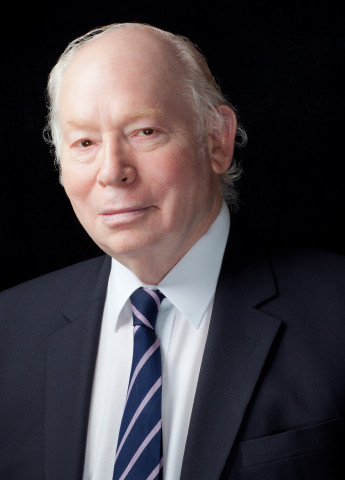Steven Weinberg, Nobel Prize-winning physics professor, dies at 88
August 9, 2021
Editor’s Note: This article first appeared as part of the August 2 flipbook.
Steven Weinberg, a physics professor at UT who won many awards, including a Nobel Prize in physics, and helped create a leading physics research group at the University, died at the age of 88 on July 23.
Weinberg conducted research on a variety of topics in particle physics, including work on the Standard Model with the theoretical physics group he founded of eight UT professors that came to be one of the leading academic physics cohorts in the nation.
Weinberg discovered that weak forces and electromagnetism had unifying links, despite what scientists previously thought. This helped form the foundation of the Standard Model that scientists today use to understand the order driving everything since the creation of the universe.
Physics professor Willy Fischler, who was part of Weinberg’s theoretical physics group, said Weinberg was a focused man when he was doing physics.
“I loved him because he wanted to understand the problems he was working on, and he was going to solve them. He had this uncanny ability to know what was important and what was the important problem in physics and which problems needed to be solved,” Fischler said.
In 1982, Weinberg moved to Austin and became the Jack S. Josey-Welch Foundation Regents Chair in Science at the University of Texas.
Weinberg was awarded the Nobel Prize in physics for his work on electroweak unification based on spontaneous symmetry breaking in 1979. In 2004, he was awarded the Benjamin Franklin Medal for Distinguished Achievement in the Sciences by the American Philosophical Society for his lifetime achievements.
UT President Jay Hartzell said Weinberg changed the world in a UT press release.
“The passing of Steven Weinberg is a loss for the University of Texas & society. Sending condolences to his family,” Hartzell said in a tweet. “Professor Weinberg unlocked the mysteries of the universe for millions, enriching humanity’s concept of nature & our relationship to the world.”
Fischler said Weinberg’s students were always fascinated with his lessons.
“He was already famous when he came to the University, which means he attracted a lot of good students in physics. He made the physics department extremely attractive.” Fischler said. “Not only (did he continue) to do superior work, which had interest way beyond the University of Texas, his work impacted the whole field worldwide, and that’s even after he got to Texas.’’











